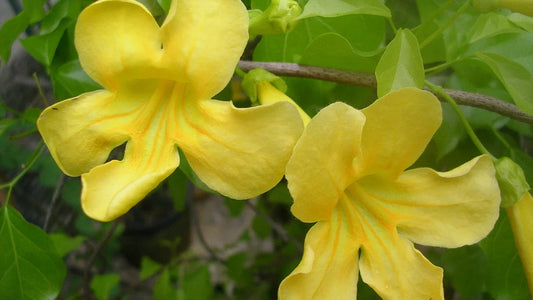
The History & Benefits of Herbal Medicine
share
Ancient Greeks and Romans were herbalists with the most well-known Greek physician being Hippocrates, who is also known as the "Father of modern medicine" Hippocrates was regarded for his ethics associated with medicine and for the "Hippocratic Oath". Two Greek surgeons in the Roman Army, Dioscorides and Galen compiled the matera medica texts that have become a foundation for modern day herbal medicine. Herbal medicine was preserved in Monasteries throughout Britain and Europe as they served as medical schools, with the Monks translating much of the works of Hippocrates, Dioscorides and Galen.
Ways herbs have been used
 Herbs have been used in many ways throughout history, not only as the backbone for Indigenous medical systems, but also in healing rituals. Depending on the herb, there were many ways in which they can be used, such as ingestion of the herb, syrup, tinctures, ointments/salves, essential oils, smoking and consumption teas to name a few. The book 'The Devine Farmer's Classic of Herbalism' is the oldest known herbal text in the world, compiled in China about 2000 years ago.
Herbs have been used in many ways throughout history, not only as the backbone for Indigenous medical systems, but also in healing rituals. Depending on the herb, there were many ways in which they can be used, such as ingestion of the herb, syrup, tinctures, ointments/salves, essential oils, smoking and consumption teas to name a few. The book 'The Devine Farmer's Classic of Herbalism' is the oldest known herbal text in the world, compiled in China about 2000 years ago.
Modern age herbal medicine
The increased interaction with allopathic and holistic practitioners is enabling more people across the globe to embrace an integrative healthcare regime with the use of both herbs and pharmaceutical medicines. The use of herbal medicine has continued to grow and develop into the modern age, with professions such as naturopaths and herbalists continuing to grow in popularity. Universities and Colleges globally teach Naturopathy with the course framework now heavily based on science and evidence, not only on traditional use of herbs. Herbal medicine plays a valuable part in prevention of ill health, with many people choosing to use herbs to aid general health and wellbeing.
Popular use of herbal medicine
The World Health Organisation (WHO) estimates over 50% of people in industrialised nations have used herbal medicines for some part of their health care, and in Africa, up to 80% of the population uses herbal medicine for their primary health care.
Many popular body systems people lean towards herbal medicine include:
Eye Health - with the use of antioxidant rich herbs.
Digestive Health - with the use of bitter herbs.
Liver health - with the use of liver protective herbs.
Joint health- with the use of anti-inflammatory herbs.
Skin Health - with the use of antioxidant herbs.
Scientific advancements
In the early stages of herbal medicine's history, the exact mechanism of action of the herbs had not been established, relying on the effects they had on the person rather than being able to determine the active components involved or its actual biochemistry. Even though the active components were unable to be pinpointed at this time, research has shown that Indigenous cultures around the world tended to use the same or similar plants for the same ailments. Often we see Indigenous cultures who never crossed paths use the same herbs for the same purposes at opposite ends of the globe.
 The developments in science has had a vast impact on what we know about the ways in which herbs work in the body and what component of the plant is responsible for the therapeutic effects. Since the early 19th century scientists have been able to analyse the herbs and establish their mechanism of action. They have also been able to determine which parts of the plant contains the highest levels of these active constituents. Generally the parts used in herbal medicine are the leaves, flowers, roots, seeds, berries and bark.
The developments in science has had a vast impact on what we know about the ways in which herbs work in the body and what component of the plant is responsible for the therapeutic effects. Since the early 19th century scientists have been able to analyse the herbs and establish their mechanism of action. They have also been able to determine which parts of the plant contains the highest levels of these active constituents. Generally the parts used in herbal medicine are the leaves, flowers, roots, seeds, berries and bark.
Scientific advances and determining active components of herbs has paved the way for many pharmaceutical medications, in fact many of our drugs were originally derived from herbs such as aspirin which traditionally was derived from the herb Willow Bark, until ways to synthetically create these were discovered. There is an increase in herbs undergoing clinical trials for validity rather than only relying on the traditional use information already established about the herb. The shift to evidenced based herbal medicines is also seeing swing to standardized herbal medicine preparations, in which the active components of the herb are identified and in concentrated forms in the preparation to ensure the active component is at a dose that may provide therapeutic actions.
share
Stay Informed. Feel Your Best.
Get expert tips and actionable health advice. Be the first to hear about Caruso's product launches and receive exclusive promotional offers.
Join our newsletter today.



